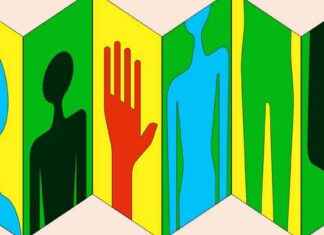As the persistent drought progresses and copious rains do not arrive, the CQP operation (campi qui pui) is made official. The rigid attitude adopted by the Generalitat a few months ago regarding water consumption restrictions has been relaxed for two main reasons. The first is common sense, and the second, the proximity of the elections to the Parliament, which advises against raising more than necessary the suffering citizen and taxpayer.
For this reason, the Government is determined to listen to all the proposals that help to alleviate the drought and to forget the cycle-styled negative response that it usually uses in front of any project that does not come from the Administration. In this sense, the proposal of the Lloret de Mar hoteliers to buy a desalination plant to fill the swimming pools and send the surplus to the town’s public network was the trigger for the CQP operation. After a short-term debate and weak criticism, the idea has been authorized, as long as it is applied to avoid damage to economic activity or the loss of jobs. But so that it does not appear that the Government surrenders to the interests of the tourism sector, they are prevented from watering the garden with this water and the connection with pipes between the desalination plant and the public network is not prioritized. Everything will come.
And the fact is that the Government also cannot give up the important tax collection that it receives from the tourism industry if the latter closes or operates at half throttle, nor can it allow an increase in the unemployment of the employees employed by this sector. Without forgetting that the Generalitat itself created a precedent when it authorized the first of these desalination plants in Port de la Selva, nor was it opposed to those operating in the ports of Blanes and Vilanova. These last two installations have given such good results to the fishing and nautical sector that Ports de la Generalitat will support the purchase of desalination plants in the 45 ports that it manages directly or indirectly. It is not just about facilitating the viability of fishing and boating, but about the survival of Ports, because their customers are the concessionaires who pay to use the ports with the corresponding services. And having water is one of these counterparties. Therefore, Ports will subsidize fishermen’s confraternities and yacht clubs that buy desalination plants.
The proposal has a long way to go, because these desalination plants could produce much more water than the port users need and the surplus could be injected into the municipalities’ public network, after purification, or incorporated into the aquifers. Can you imagine that in a very short time 45 desalination plants will be installed along the 580 kilometers of Catalonia’s coast and that the public cost of the latter will be lower because they are driven by the private sector? The Administration should only facilitate the connection from the ports to the pipes of the nearest municipality and from there to the whole of Catalonia, if necessary, even to the regions of the Ebro, if one day it was necessary. The cost of this connection is ridiculous compared to other large projects that go for a longer term.
The drought is a misfortune, but it opens up new opportunities that will structurally help solve the chronology of the problem. Once again, private initiative has opened the eyes of a slow, congested Administration held hostage by a priori and out-of-date discourses that installed it in the no-to-all. You only have to look at the anachronistic operating system of the Catalan Water Agency (ACA), which cannot go into debt and must accumulate money for years to be able to invest. That this serious crisis serves to reform a model that is clearly outdated.















